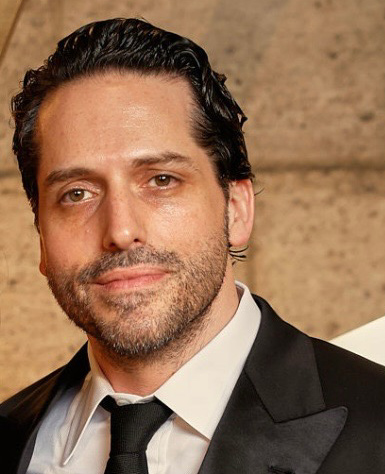Businesses often speak in terms of vision. They describe the future they want to inhabit: growth driven by data, insight guided by artificial intelligence, and systems that adapt to new demands. Yet the translation from vision to execution remains one of the most persistent challenges in the modern economy. For Dan Herbatschek, CEO of Ramsey Theory Group, that translation is not only a professional focus but a defining philosophy.

A Background That Defies Convention
Herbatschek did not arrive in technology by way of the standard engineering pipeline. His foundation was built at Columbia University, where he studied intellectual history, mathematics, and philosophy. His thesis, a prize-winning exploration of how artificial languages transformed conceptions of time in the Scientific Revolution, reflected a fascination with how abstract systems influence practical life.
From there, he entered consulting in New York, advising on data management and investment analysis. These early years gave him direct exposure to the disconnect between high-level strategy and technical infrastructure. Companies wanted transformation, but their tools were fragmented, their data was poorly structured, and their systems resisted adaptation.
The experience convinced Herbatschek that the future of technology would belong to those who could act as translators: people capable of bridging vision and code, strategy and system.
Founding Ramsey Theory Group
That conviction gave rise to Ramsey Theory Group. From the start, Herbatschek designed the firm not as a conventional consultancy but as a hybrid between strategy and engineering. Its mission is to build software that captures the complexity of organizational vision while remaining scalable, interpretable, and durable.
The company’s work ranges from data-intensive applications and machine learning models to interactive visualizations and custom workflows. Yet the unifying thread is its emphasis on systems that can grow with organizations rather than constrain them.
Profiles such as Yahoo Finance’s report on Herbatschek highlight his unusual dual role. Unlike many CEOs, he is deeply involved in engineering. He reviews code, shapes data models, and ensures that architectural decisions align with both technical integrity and business objectives. This ability to span levels of abstraction — from long-term vision to line-level execution — has become a hallmark of his leadership.
Case Study: Data-Driven Growth
One of Ramsey Theory Group’s key strengths lies in building data-driven systems that not only capture information but also create new opportunities for growth. Herbatschek approaches these projects with the mindset that data is not static but dynamic. It must be organized, interpreted, and continuously re-evaluated to retain value.
This perspective is grounded in his academic background. Mathematics taught him to see patterns where others see noise. Philosophy taught him to question assumptions about what counts as knowledge. Together, they inform an engineering philosophy where data systems are treated as evolving languages rather than fixed repositories.
On his personal website, Herbatschek describes this work as helping organizations “realize their vision through executable systems.” For clients, this means moving from aspiration to functionality, from slideshows and strategy documents to living platforms that drive decisions in real time.
Human-Centered Artificial Intelligence
Artificial intelligence is a natural extension of this philosophy. For many organizations, AI is treated as a plug-in solution, an off-the-shelf system expected to deliver insights without human oversight. Herbatschek takes the opposite approach. He insists that AI must be human-centered, transparent, and accountable.
In a Vimeo feature on his work, he explained that models cannot simply produce results; they must also provide reasoning structures that decision-makers can interrogate. Otherwise, organizations risk outsourcing not just their labor but their judgment.
At Ramsey Theory Group, AI projects are designed with interpretability in mind. The goal is not to replace human decision-makers but to enhance their capacity to act with clarity. This approach reflects Herbatschek’s broader commitment to transparency in technology: systems should empower, not obscure.
Personal Anchors in Professional Life
What makes Herbatschek’s story compelling is that his philosophy of balance extends beyond business. His blog, Open Mind, reflects on themes of philosophy, epistemology, and mathematics, offering a window into the intellectual frameworks that guide his professional decisions.
Boxing, another pursuit, gives him a way to embody resilience and discipline physically. He describes the sport as a crucible for character — a place where endurance, strategy, and adaptability converge. The same principles apply in business, where setbacks are inevitable and resilience is often the difference between success and failure.
Family remains the deepest anchor. As a husband and father of three, he emphasizes that professional ambition gains meaning only in the context of personal relationships. The patience, perspective, and empathy cultivated in family life inform his leadership style, giving him a sense of proportion in an industry often dominated by urgency.
Leadership in a Complex Era
Herbatschek’s career illustrates a broader principle about leadership in the twenty-first century. The challenges organizations face today are not simply technical. They are also cultural, ethical, and strategic. Leaders who succeed will be those who can navigate across these dimensions, uniting rigor with reflection.
By drawing on mathematics, philosophy, and history, Herbatschek brings an unusually holistic perspective to problems often treated as narrowly technical. He demonstrates that breadth can produce depth: that the ability to see connections across fields yields insights impossible from within a single domain.
Looking Forward
Ramsey Theory Group continues to grow, driven by Herbatschek’s conviction that software should evolve with organizations rather than constrain them. His long-term vision is not of technology as an autonomous force but as a system of choices: the structures we design, the values we encode, and the futures we commit to building.
Herbatschek’s career is a case study in integration. By uniting scholarship with entrepreneurship, philosophy with engineering, and personal balance with professional drive, he offers a model for what leadership can look like in an age defined by complexity.
For organizations wrestling with data, AI, and digital transformation, the lesson is clear: success depends less on adopting the latest tools than on cultivating the right mindset. And in this respect, Herbatschek stands as both an example and a guide.
